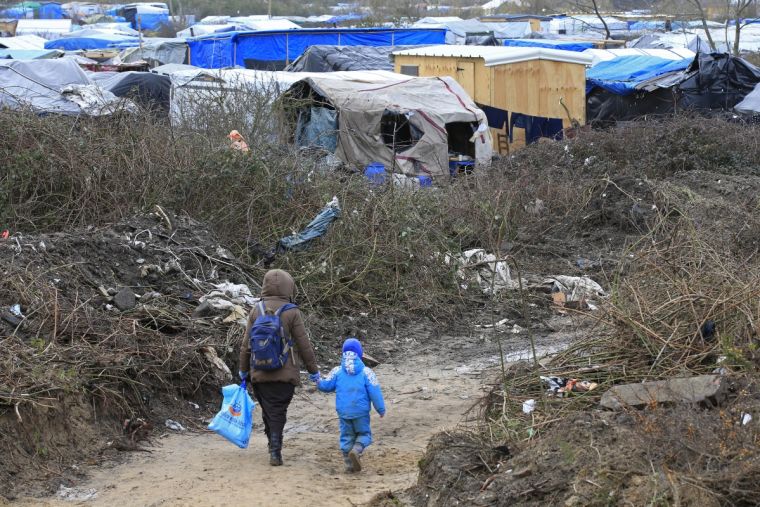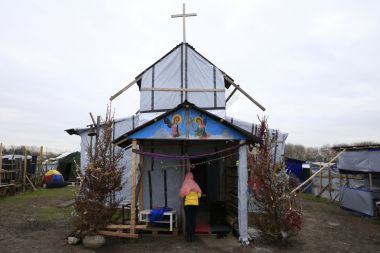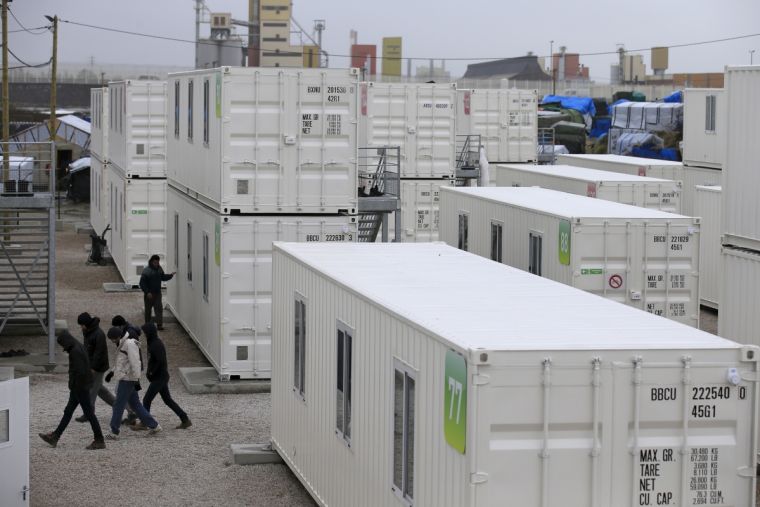Calais Jungle demolition to go ahead: 'It's as if the government wants people to disappear'
Campaigners today condemned the verdict that French authorities can legally demolish a large part of the so-called 'Jungle' camp outside Calais, where thousands of refugees are living in the hope of making it across the Channel to a new life in the UK.

A court in Lille this afternoon ruled that the eviction plan for the camp was legal, after Judge Valérie Quémener on Tuesday postponed the decision. She had said she had a "real problem" reconciling the difference between the number of refugees and migrants estimated to be living in the camp by French authorities, and figures given by NGOs and other aid agencies.
According to the Calais prefecture, between 800-1,000 people of a population of 4,000 would have to leave the southern part of the camp under plans to bulldoze it. Help Refugees and Auberge des Migrants, charities working in the Jungle, however, put the number at more than 3,450. Of these, at least 305 are unaccompanied children, many of whom have fled war and persecution in countries such as Iraq, Syria, Afghanistan and Eritrea.
A spokesperson for the Pas-de-Calais prefect's office today said: "The order [for demolition] is applicable, except for common social areas".
Speaking to Christian Today ahead of today's verdict, Tanya Freedman of Help Refugees said the charity could not predict Quémener's decision, but they remained hopeful given that she had taken two days to deliberate. "We hope that means better measures are going to be taken," Freedman said.
Now that the decision to go ahead with the demolition has been made, however, Help Refugees said in a statement that it would appeal the verdict.
"We are devastated to announce that this afternoon the court ruled against us and have upheld the decision to demolish the Southern section of the 'Jungle'," the statement said.
"We will be appealing this decision immediately. We are shocked that this verdict will strip refugees of their homes once again without adequate alternative provisions. Our census revealed 3455 refugees will be evicted and it was stated in court that only 1156 alternative places are currently available across France.
"Our concerns particularly remain with the 305 unaccompanied children who will be evicted from their living quarters without proper assessment, safeguarding or suitable alternative provisions...We will do everything in our power to assist the refugees and minimise their trauma."
The charity said it had received no confirmation of when evictions and bulldozing will begin.
Tensions rising
Teams working on the ground in Calais report a desperate situation. Poor facilities, lack of sanitation, and inadequate shelter mean that thousands are struggling to survive the winter. "There is no dignity," Vincent de Connick of Secours Catholique, part of the charitable arm of the Catholic Church, told Christian Today. Speaking from the camp on the French coast, he said: "There's much tension and worrying about the evacuation."

Campaigners fear that the alternative to the Jungle is an even worse prospect for the thousands of refugees set to be displaced. While Calais is cold and wet, those living there have created small communities in the hope of recreating some semblance of normality. Among the makeshift shelters, thrown together with whatever plastic sheeting they can find, are half a dozen mosques, an orthodox church, cafés, restaurants, shops, libraries and even a theatre – actors from London's Shakespeare's Globe performed there earlier this month. A number of charities and volunteers offer French and English lessons, legal advice on claiming asylum and opportunities to meet with people from all over the camp. "It's not normal life," de Connick said. "But it's at least social life. It's human being life."
These facilities are at risk under the bulldozing plans. According to Help Refugees, the prefecture promised in court today that "social spaces" would not be destroyed; the charity understands these to include the church, mosques, the schools, the women and children's and youth centres, and the library. But lots of services will still be lost, Freedman said this morning. "Commercial enterprises which give people a place to be. Those little things that make people feel some semblance of normal life."
Refugees who will be moved on from their temporary homes in the southern part of the camp are being offered bleak alternatives. Lawyer for the prefecture Pascale Léglise said they may be relocated to one of 98 refugee centres across France – including Dunkirk, where conditions are worse even than Calais – or to converted shipping containers in the northern part of the Jungle.

These containers are heated, and provide good protection from the cold, but little more than that, campaigners say. Each is totally bare apart from six sets of bunk beds, so inhabitants can only stand up or lay down when inside. One man already living there tried to build a wooden box for his shoes but was stopped by authorities who said no additional furniture was allowed, Freedman said. "No one wants to feel that they are in a facility, almost like a prison".
De Connick said that while the containers do provide adequate shelter, "refugees are not only bodies that need to be at a good temperature at night. They need social life, spiritual life, cultural life." There simply isn't enough space there for all the refugees that will need rehousing when the demolition goes ahead, he added.
"The solution to eradicate the camp is not a solution as long as it does not provide proper solutions for everybody, and that's why we were forced to go to court," he said. "We would like the camp to disappear in the future and we're ready to collaborate, but it must take time – we have to discuss it with the refugees, experiment and try different solutions. It's as if the government would like to make people disappear before the Spring because they are afraid of new arrivals."
'Appalling' action by governmental authorities
Campaigners have condemned the French and British authorities for their handling of the situation, particularly of those refugees who have family in the UK and are therefore legally allowed to claim asylum in Britain. Hollande's government is "still afraid by the number," de Connick said.
"The point for them is to empty Calais and send people everywhere that's not Calais," he added. The British government, meanwhile, "applies the law when it wants to send people back but not when it has to welcome them."
Freedman branded the French authorities' actions so far "appalling". "They've allowed this to happen," she said of the conditions in Calais. "They gave this space to the refugees a year ago, and said 'this is where you can go', and then abandoned them. They've done almost nothing... There's nobody there regularly to explain [to refugees] what their rights are. It's a huge failure in the system."
The main concern for these charities is the plight of unaccompanied minors, hundreds of whom are living in the Jungle. Child protection agencies registered around 1,600 in France in 2015, but the true figure is believed to be far higher. "They are the most vulnerable. These young people are alone in the world. Some have lost their parents, some were sent by their parents because they thought it was their best chance of survival. Nobody would wish this on any young person – they need support, they need guidance, and to be in education," Freedman said.
Dr Philip McCarthy, CEO of the Catholic Social Action Network (CSAN), yesterday told Christian Today that the future for vulnerable people living in the camp in Calais is bleak should the demolition go ahead. "Some will be forced into the arms of people traffickers, some will attempt the risky crossing of the Channel. Some will be dispersed only to come back," he said.
"We're urging our government to intervene," Freedman added. "No one should be living in the mud."











